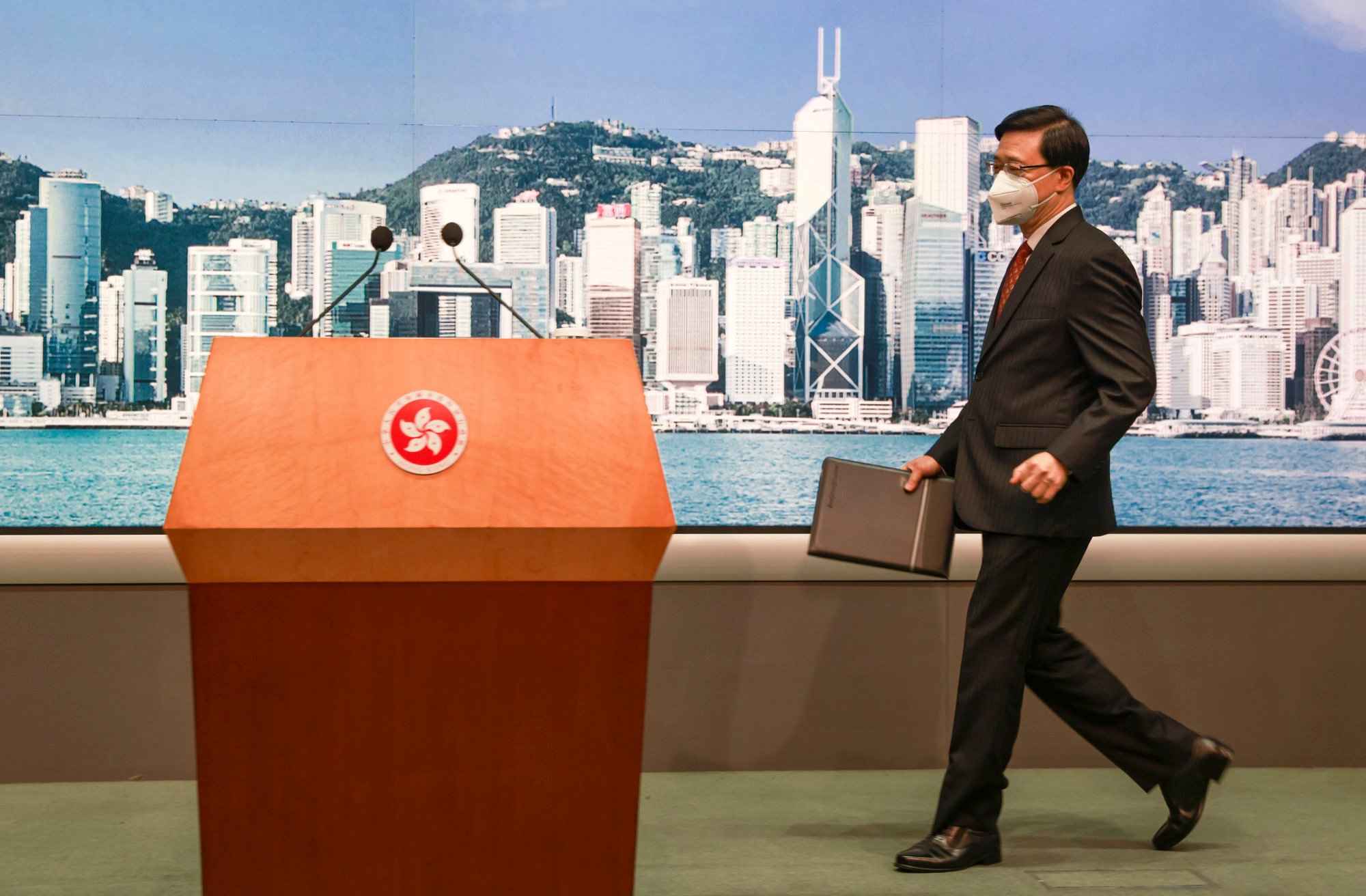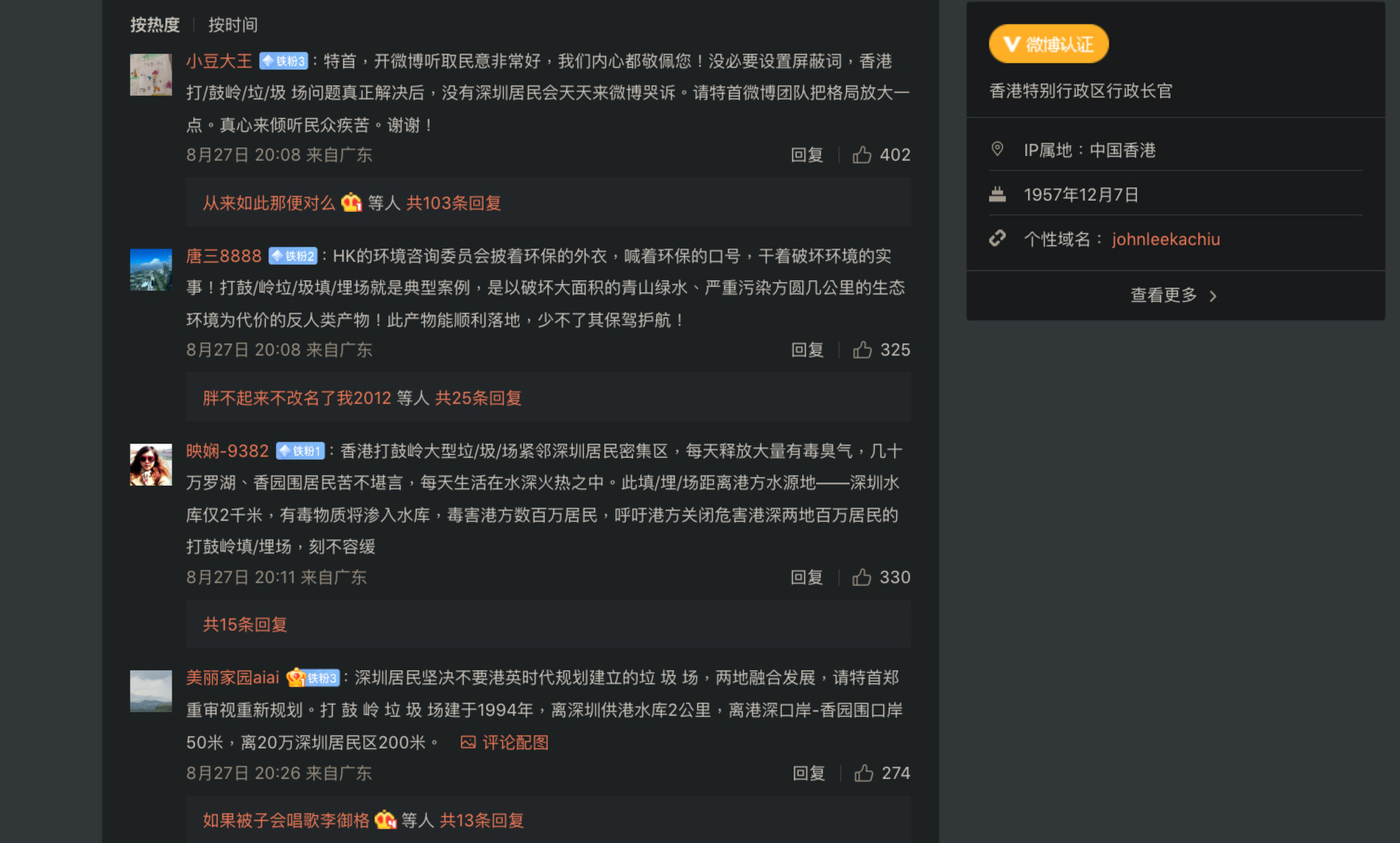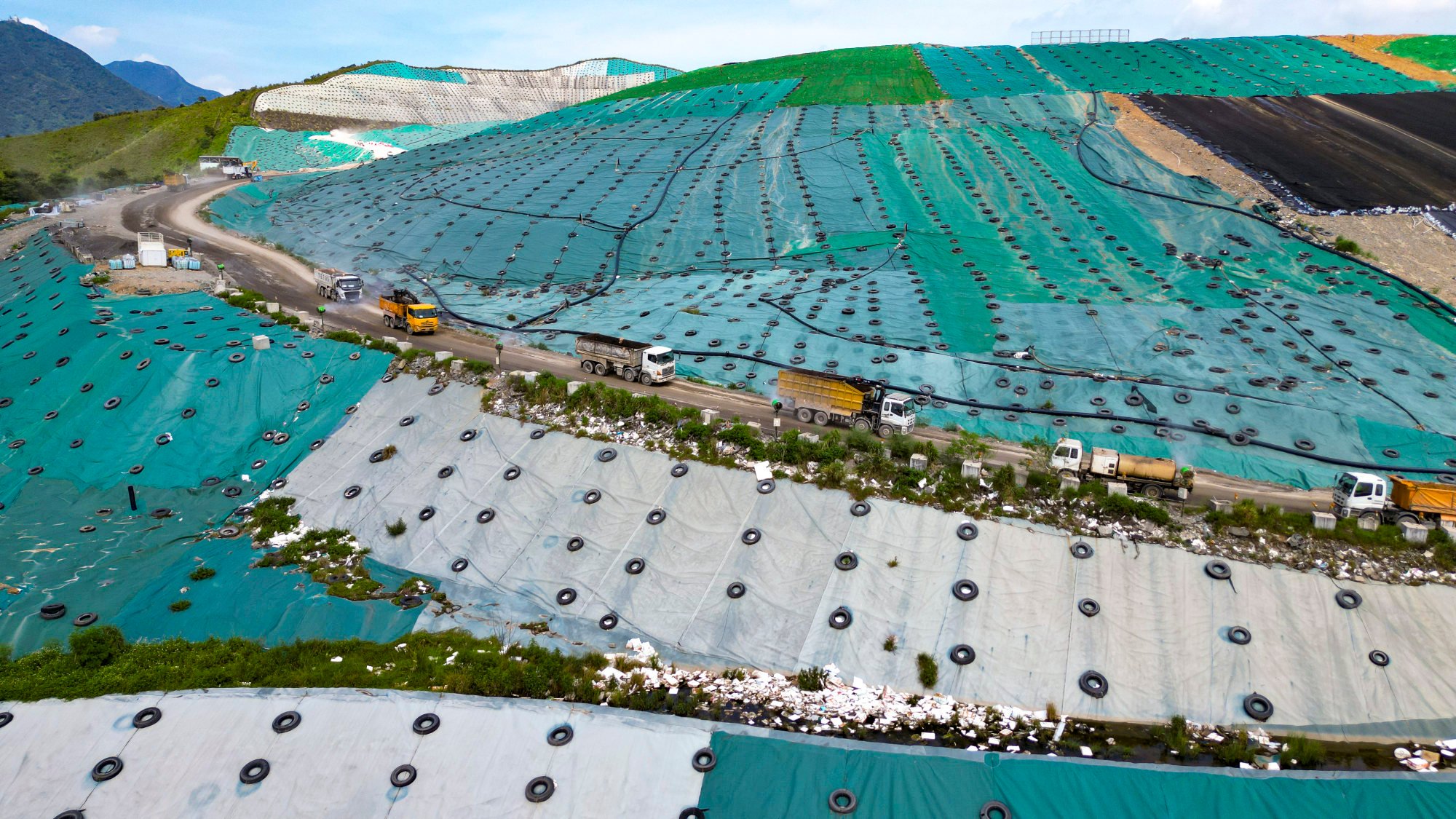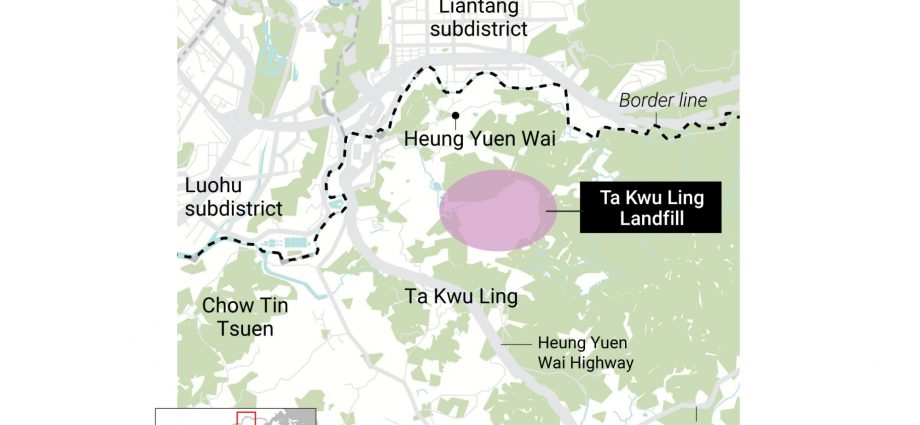It began as a trickle, then became a flood of complaints about the foul smell from Hong Kong’s Ta Kwu Ling landfill, 2km from Shenzhen, across the border.
Over two months, Hong Kong leader John Lee Ka-chiu’s maiden account on Weibo, China’s Twitter-like microblogging site, has attracted mostly friendly comments, but some unhappy messages began turning up.
“Chief Executive Lee, come to Liantang to smell the Hong Kong-produced toxic, stinky scent we smell every day,” wrote Weibo user Jenny, referring to the area in Shenzhen where she lived.
Another user, “King of Small Beans”, asked: “Was it mutual respect when Hong Kong placed a garbage dump at the door of Shenzhen? This hostile facility has to be removed before you talk about integration of the Greater Bay Area.”
After amassing 1.5 million followers in just two months since taking office in July, it looked like Lee’s Weibo account was no longer overwhelmed by favourable comments.
It was not as if the landfill in the northeastern New Territories had only just opened. It has been there since 1995, attracting unending complaints from residents on both sides of the border and assurances from Hong Kong authorities that their woes were heard.

Phoenix TV, a partially state-owned broadcaster, made the rare move of reflecting online comments in two news reports last week, piling pressure on Lee to address the problem of air pollution at the landfill.
Now observers are waiting to see how Lee, the first Hong Kong leader to appear on mainland China’s social media scene, will respond, and whether he can prevent the snowballing grievances from tripping his plan to connect with people across the border while pursuing mega integration projects.

“Weibo opened up a channel for direct complaints from mainland netizens that had not been there before,” said Professor Tetsuro Kobayashi, a political communication scholar at City University. “If Lee is perceived as ignoring these mainlanders’ demands, their evaluation of him will deteriorate.”

Last Thursday, the city leader commented on the odour issue for the first time, saying he was aware of dissatisfaction among local residents and those across the border, adding: “We have been taking mitigating measures to minimise negative impacts.”
The massive Northern Metropolis project planned near the border includes Ta Kwu Ling and is envisaged as “a high-quality liveable zone” with about 926,000 new homes.
Lee has yet to say anything on his Weibo account, replying directly to his followers’ complaints.
Old problem, new pressure
Retiree Man Kwai-wah’s family has been rooted for more than 300 years at Heung Yuen Wai, a small village in Ta Kwu Ling that is home to dozens of elderly Hongkongers.
Pointing to a hill facing his house, the 70-year-old told the Post the 95-hectare landfill had been a source of distress since it began operations in 1995.
“Every day I open my door, the air is filled with the rancid odour of rotting garbage, plastic and faeces,” Man said. “It is the kind of stench that makes you lose your appetite immediately.”
He said the smell had worsened over the past two years, forcing him to minimise the time he stayed at home by spending most of the day wandering around places further away.

Man said he felt frustrated that nothing had changed despite many rounds of complaints by residents.
The Environmental Protection Department said about 5,000 complaints concerning the site were submitted last year through a rural committee, and 154 from across the border.
A spokeswoman said that in the first half of this year, there were 115 complaints, all from outside Hong Kong.
As for the mitigating measures Lee referred to, she said they included halving the number of working areas for solid waste and spraying deodorants regularly since last year.

‘Lee must address online furore’
Ricky Fan Hai-tai, chairman of the green NGO Hong Kong Environmental Protection Association, said he was glad mainland Internet users had forced the city leader to deal with a problem that had existed for a long time.
He said the stench at Ta Kwu Ling, one of Hong Kong’s three strategic landfills, had worsened since 2016 when it began accepting municipal garbage from the Tseung Kwan O site, after people in that area complained about the foul smell.
Fan felt Lee had to address the online furore, especially in light of major cross-border efforts including the Greater Bay Area scheme linking Hong Kong, Macau and nine cities in Guangdong into an economic powerhouse.
“Those sarcastic remarks now reach everyone in the country,” he said. “If they are not dealt with properly, it will definitely affect mainlanders’ perception of Hong Kong and undermine integration efforts in the development plan of the Greater Bay Area.”

The Phoenix TV reports, and the suddenness with which so many mainlanders took to Weibo, led some to wonder if it was all orchestrated to put pressure on Hong Kong’s new leader.
City University’s Kobayashi said that in authoritarian societies, social media played a vital role in raising public discontent, and on the mainland, Weibo allowed citizens to complain directly to local government officials.
“Opening new communication channels between the chief executive and mainland citizens will force him to respond to mainland-style citizen pressure,” he said. “They expect that their expressed dissatisfaction will result in an actual administrative response.”
As for suspicions that the surge of complaints might have been orchestrated, he said: “If the complaints were not entirely spontaneous, the mainland will be able to control the situation and intervene before it gets too bad.” – South China Morning Post
More from South China Morning Post:
For the latest news from the South China Morning Post download our mobile app. Copyright 2022.

